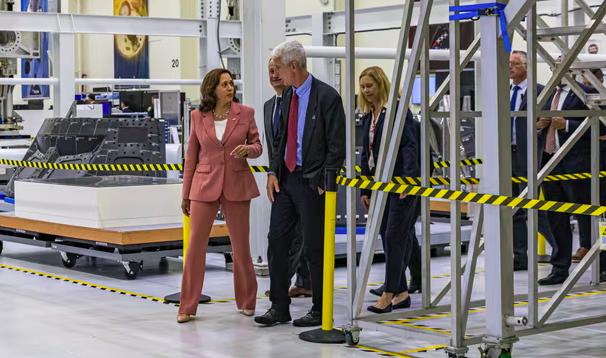NASA has decided to postpone its ambitious Artemis program, designed to return humans to the moon, due to delays and development challenges. The Artemis III mission, which involves landing four astronauts near the lunar south pole, will now be delayed by a year, with the new target date set for September 2026. Additionally, Artemis II, a 10-day expedition intended to send a crew around the moon to test life support systems, will be pushed back to September 2025. These delays are anticipated to provide NASA teams with additional time to address the development challenges associated with the program, which involves partnerships with private companies such as SpaceX and Lockheed Martin.
The Artemis program, a crucial component of NASA’s broader objectives for space exploration, is aimed at establishing a long-term human presence beyond Earth’s orbit. This includes the construction of a lunar base camp and a space station in orbit around the moon. While Artemis I, the first mission of the program, successfully took place in 2022, providing valuable data and insights, subsequent missions have encountered complications that necessitate additional attention and refinement.
SpaceX, one of the key private partners in the Artemis program, is tasked with developing a lunar lander that will transport astronauts to the moon. However, the SpaceX Starship system, designed to be the largest and most powerful rocket ever made, is still in the early testing phases. While the company has achieved successful launches, some have ended in explosions at altitude during testing. SpaceX’s approach embraces the philosophy that “failure” is a part of the development process, allowing the company to take risks that traditional government space agencies often avoid.
The delay in the Artemis program will not only provide NASA with an opportunity to address technical challenges but will also give private companies, like Axiom Space, involved in developing technologies such as spacesuits, more time for refinement. The postponement acknowledges the complexities and hurdles faced by industry partners and aims to ensure that the program proceeds with a focus on safety and reliability.
NASA’s Artemis program holds significant historical significance as it seeks to return humans to the moon for the first time in half a century. The ultimate goal is not only to revisit the lunar surface but to pave the way for more extended human presence in space, including future missions to Mars. The program aims to achieve these objectives by leveraging advancements in technology, international collaboration, and partnerships with private entities. Despite the challenges and delays, NASA remains committed to the success of the Artemis program, recognizing its importance in shaping the future of human space exploration.

